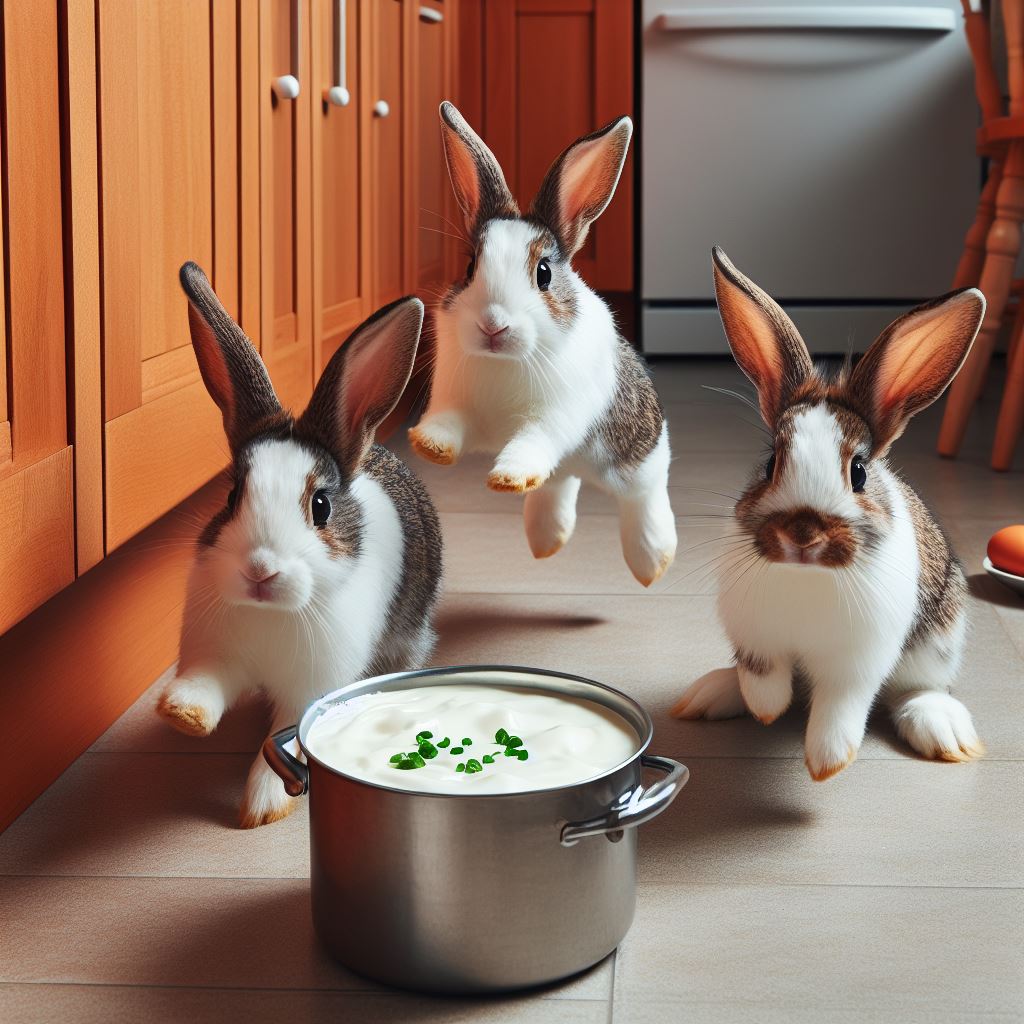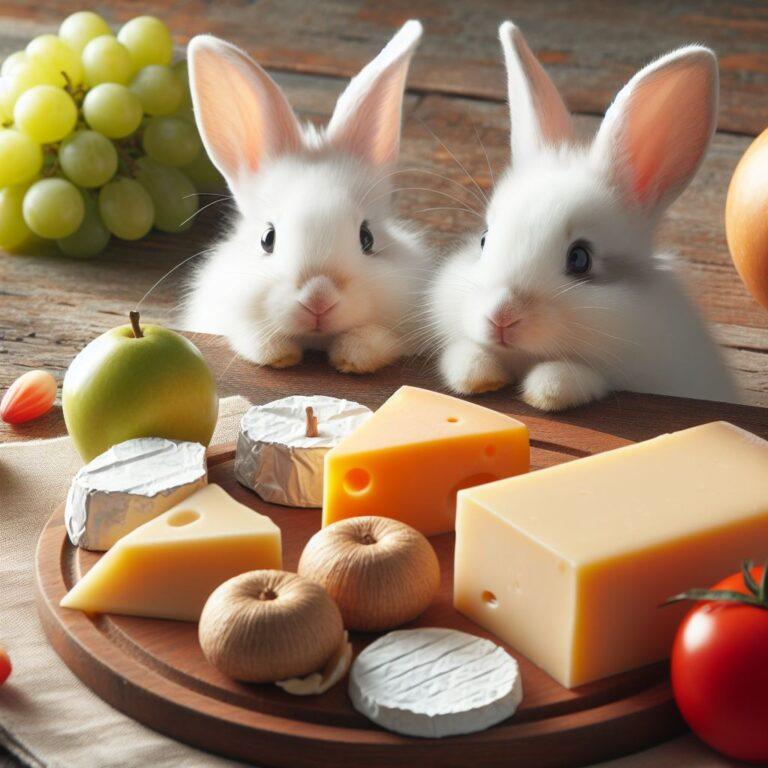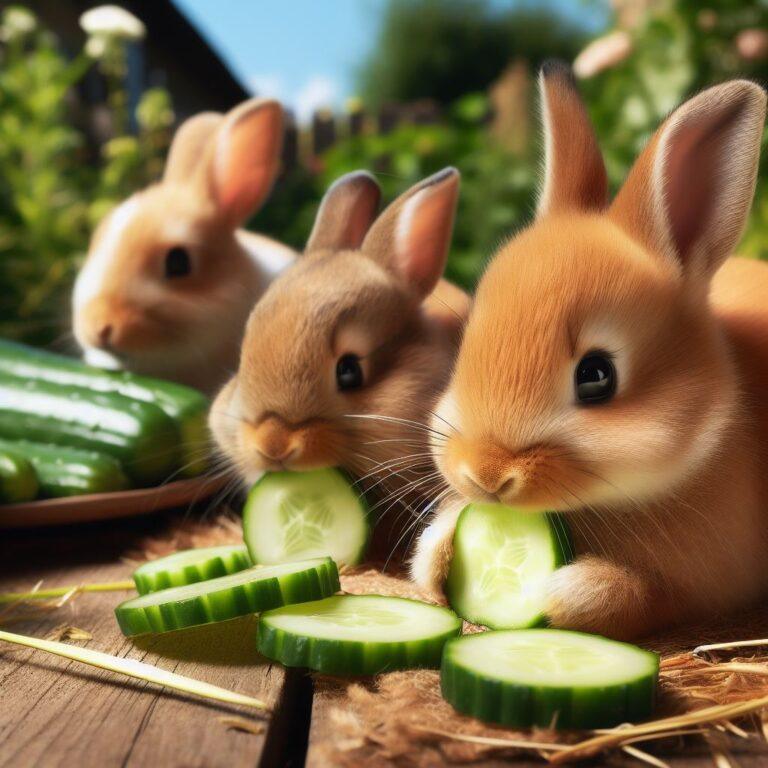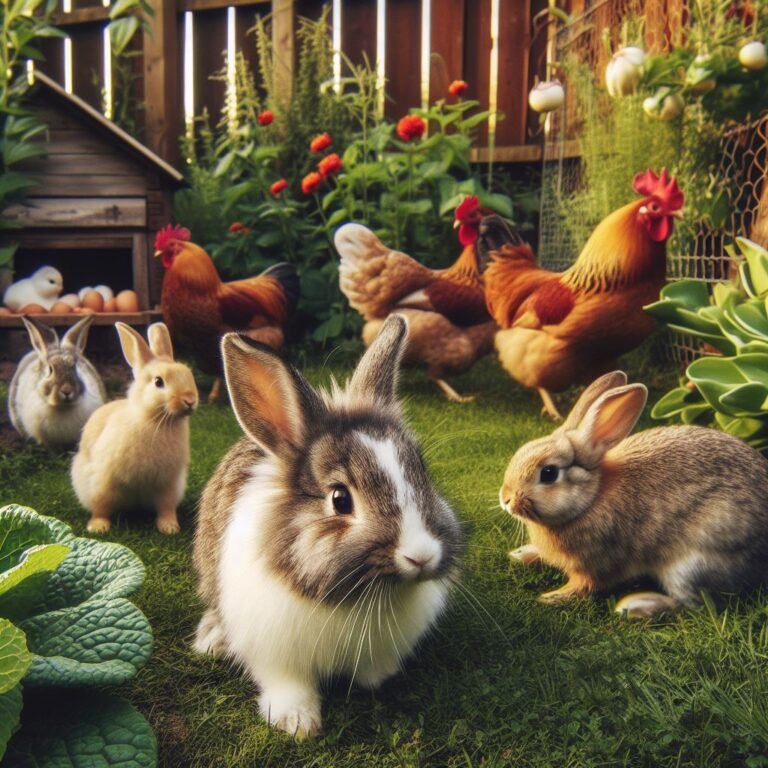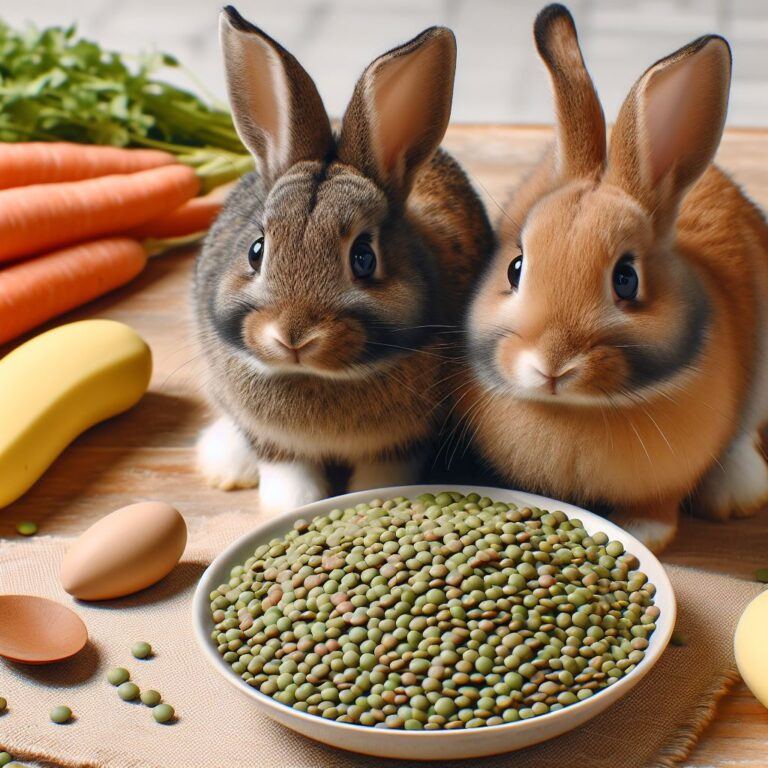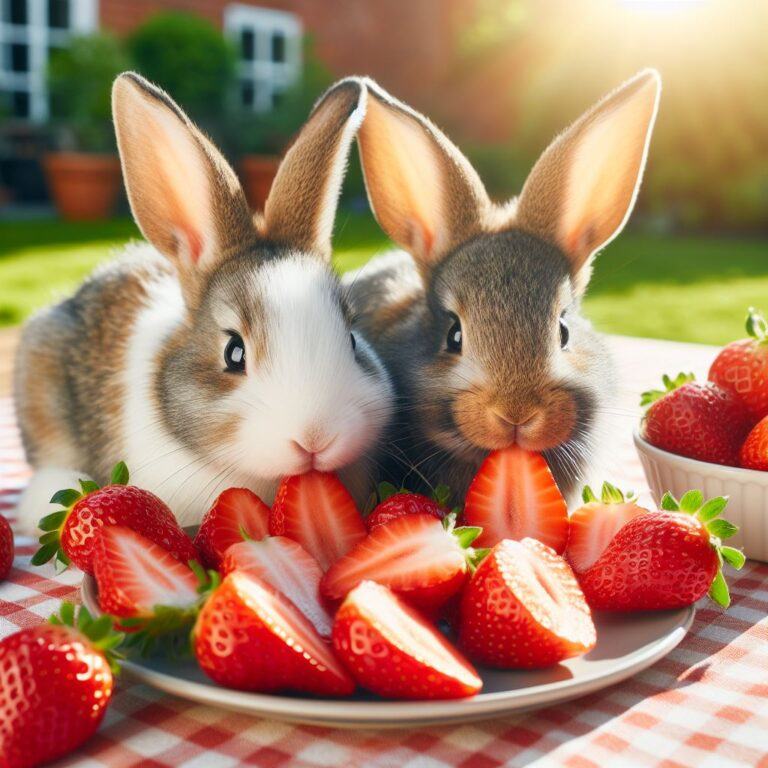Can Rabbits Safely Eat Yoghurt
The short and straightforward answer is NO, rabbits should not eat yoghurt. Why? Well, they have a delicate and very special digestive system that’s simply not designed to handle dairy products like yoghurt. Their gut lacks the enzymes needed to break down lactose, a sugar found in all dairy products.
When rabbits eat foods that contain lactose, they’re at a high risk for digestive disturbances, which can lead to serious complications.
Dairy products like yoghurt, milk or cheese can cause symptoms such as diarrhoea, bloating, and discomfort in rabbits.
As cuddly as our rabbits may be, their dietary needs are very different from ours.
Why Yoghurt is a Risk and Understanding Rabbit Digestion
As I mentioned, rabbits have a delicate digestive system which is finely tuned for their natural diet of hay, leafy greens, and fibrous plants.
Unlike omnivorous animals that can handle a range of foods, including dairy, rabbits lack the digestive enzymes, like lactase, needed to break down lactose found in yoghurt and other dairy products.
This gap in their digestive capabilities is the reason why dairy should be off the list for rabbits.
When a rabbit consumes yoghurt or other dairy products, their body isn’t equipped to process it. It can lead to digestive discomfort, gas, and bloating.
In some cases, the introduction of dairy can disrupt the delicate balance of their gut bacteria. This imbalance can result in gastrointestinal stasis, a potentially life-threatening condition where the digestive system slows down or stops altogether.
I personally had a situation many moons ago when a friend who kept a few rabbits phoned me up seeking advice, as three out of the five rabbits she had were suddenly very ill.
I rushed over there and they were not in a good way. So, we got them in the car and headed straight for the emergency vet hospital. Luckily, things turned out ok in the end and they survived to live to a good age, but it was all because my friend had fed them some yoghurt!
So, it’s crucial to recognize that a rabbit’s digestive system does not work like ours. While probiotics in yoghurt can be beneficial for humans, the benefits are certainly not the same for rabbits.
This means even yoghurt brands or varieties marketed as ‘probiotic-rich’ or ‘healthy’ can still pose the same risks.
Healthier Alternatives to Yoghurt for Your Rabbit
While yoghurt and other dairy products aren’t suitable for your rabbit, there’s no shortage of fresh healthy snacks we can give to keep them happy and nourished.
As rabbit owners, we must always focus on a rabbit’s natural diet, one that is high in fiber and low in sugar.
Hay should always make up the biggest part of their diets but, fresh leafy greens like romaine lettuce, spinach, kale and cabbage, can be excellent daily additions. Also, some fresh veggies such as broccoli, pumpkin or celery can add variety when fed correctly.
As an occasional treat, small quantities of fruits such as (seedless) apples, blueberries, or cranberries can be given, but due to their high sugar content, moderation is very important.
Please, always remember to introduce any new food to your rabbit’s diet GRADUALLY. This prevents digestive upset and allows you to monitor for any bad reactions.
Regular consultations with your veterinarian are a must to monitor your bunny’s general well-being and they will tell you if any dietary changes need to be made due to specific health problems
Caring for a rabbit comes with the responsibility of understanding its dietary restrictions and nutritional requirements. Please always RESPECT their unique needs, learn from what happened with my friend and you will have a healthy, happy bunny.

